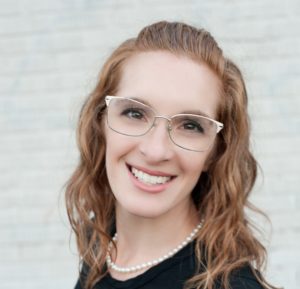
By Erika Lockwood
Don’t you just love summer? In May and June, I dream about all of the things I will accomplish during summer break – gardening, trips, relaxing with a good book, being outdoors, organizing my choral library. I’m sure I’m not alone in longing for more time to get organized with my music, and there is never enough time during the school year.
I was lucky enough to inherit a program from someone who kept a fairly detailed database of the music in the choral library. That said, the files hadn’t been updated for a while, and my predecessor is someone I would affectionately refer to as a hoarder, acquiring a library of more than 3,000 titles! It is a truly rich collection, but not without some items that have grown obsolete in a 21st-century public high school music education program.
Part of the challenge with such a large library is that so many of the pieces are unfamiliar to me. My first time through the database (the Great Library Purge of 2014), I was focused mainly on accuracy: checking the number of copies, the spelling of titles and composer names, and the categorization by genre. I gave away a few hundred titles at that time, primarily those that seemed more suited for an elementary school or church choir.
After seven years at the high school, however, I have a better idea of what is useful and timeless for a comprehensive choral program. I am more realistic now about what kind of music could or should be used in a high school choral program, even if I don’t foresee using it this year. As I make my way through, here are the things that are going away:
- Pieces that are sacred without offering historical, cultural, or musical education not found elsewhere.
- Pieces that may overtly offend a culture or group; for example, pop music with misogynistic text (I just took out “You’re Sixteen”). I’ve also removed music written “in the style of” music from another culture but from an outsider’s perspective. Some common examples include spiritual style pieces, or Hanukkah songs written with original text by someone who does not affiliate with the cultural group represented.
- Pieces that belong in a collegiate or large semi-professional adult choir. There are some exceptions to this, but most pieces with double choir in multiple divisi will probably not be performed by my high school choir. I have kept a small selection in case of a collaborative endeavor.
- “Words and music by” are a red flag for me, though there are some quality pieces in this category. Most, however, especially those I find from the 60s and 70s, don’t offer educational richness in text or music and must go.
A database and choral library that are well curated with educationally sound music make programming more efficient and successful. Next up: rounding out the library with more literature written by women and people of color. My next post will address a grant application I’ve submitted to do just that.
Erika Lockwood is director of choirs at Rex Putnam High School in Milwaukie, Oregon. She has been teaching choir to students in kindergarten through twelfth grade for over 15 years, and is currently serving as the secretary of Oregon ACDA.


Leave a Reply
You must be logged in to post a comment.